The release of the Benghazi report should have made this a great week for Hillary Clinton, but questions about her email—and a questionable social call by Bill Clinton—have cast clouds over it.
DAVID A. GRAHAM
The Atlantic
This should have been a great week for Hillary Clinton. On Tuesday, the special House committee appointed to investigate the deaths of four Americans in Benghazi on September 11, 2012, released its long-awaited report. (Well, the majority report. Democrats on the committee released their own polemic the day before.)
The report turned out about as well for Clinton as she could have hoped. While the panel found fault with the way the Obama administration, and Clinton’s State Department, ran security for embassies and other U.S. stations around the world, it did not find any new bombshells about the night of the attacks, no details that would suggest Clinton could have acted differently that evening and saved the lives of Ambassador Chris Stevens and three others. That outcome largely vindicates Clinton’s claims all along, and it mostly puts the question of the attacks to rest after a long and extremely detailed investigation (though not, as Democrats like to claim, the longest). Clinton’s political opponents are unlikely to quit talking about it, but the threat of a new, damaging disclosure now seems remote.
Yet there are rainclouds over the Clinton campaign. The biggest damage from the Benghazi report was peripheral: the revelation that Clinton had used a private email server while secretary of state, and that she had not turned over all of her emails from that period. That scandal continues to roll along. On Wednesday, The Washington Post reported on how lawsuits from the conservative group Judicial Watch had turned up at least 160 emails that Clinton did not turn over to the State Department. (She has said she handed over all business-related material but deleted private messages.) Ironically enough, one of them captures her puzzling over the public-records status of her emails. “I have just realized I have no idea how my papers are treated at State. Who manages both my personal and official files?” she asked top aide Huma Abedin and another staffer. How did these emails get left out? And are there more? The disclosure raises more questions than it answers. Meanwhile, a recently released deposition shows that Abedin had her misgivings about the elaborate email setup, which she called “not a good system.” It turns out she was not alone. State Department officials also expressed grave doubts about the approach, including Clinton’s use of a BlackBerry, in part due to security concerns.
Even with the Benghazi report out, there’s still one major investigation hanging over Clinton’s head, and that’s the one that could produce the worst outcome for Clinton—an indictment. The balance of leaks so far suggest that an indictment is unlikely, but of course that only conveys so much. Who’s doing the leaking? What are their motives? The fact is that the investigation is live. FBI Director James Comey, whose organization is running the inquiry, and Attorney General Loretta Lynch, who would make the final decision on charges, have both worked to assure the public that they are acting independently, free of political interference.
That’s why Lynch’s recent visit with former President Bill Clinton has raised so many eyebrows. The two chatted Monday night at Phoenix airport. Both were at the airport, and Clinton apparently walked to Lynch’s plane unbidden to say hello. Lynch says that they did not discuss the email investigation, and that the visit was purely social. But the cloak-and-dagger nature of the meeting—visits across the tarmac at night—is enough to arouse suspicions, and The New York Times reports that the White House declined to say whether it was appropriate. What did they talk about? And if it really was purely social, what was Bill Clinton thinking? It should have been clear that the encounter would be controversial.Politico reports that the visit made “Democrats groan,” but Republicans, independents, and transparency advocates are in the groaning gallery too.
The emails have become a classic Clinton scandal. Even though investigations have found no wrongdoing on her part with respect to the Benghazi attacks themselves, Clinton’s private-email use and concerns about whether she sent classified information have become huge stories unto themselves. This is a pattern with the Clinton family, which has been in the public spotlight since Bill Clinton’s first run for office, in 1974: Something that appears potentially scandalous on its face turns out to be innocuous, but an investigation into it reveals different questionable behavior. The canonical case is Whitewater, a failed real-estate investment Bill and Hillary Clinton made in 1978. Although no inquiry ever produced evidence of wrongdoing, investigations ultimately led to President Clinton’s impeachment for perjury and obstruction of justice.
With Hillary Clinton leading the field for the Democratic nomination for president, every Clinton scandal—from Whitewater to the State Department emails—will be under the microscope. (No other American politicians—even ones as corrupt as Richard Nixon, or as hated by partisans as George W. Bush—have fostered the creation of a permanent multimillion-dollar cottage industry devoted to attacking them.) Keeping track of each controversy, where it came from, and how serious it is, is no small task, so here’s a primer. We’ll update it as new information emerges.
Clinton’s State Department Emails
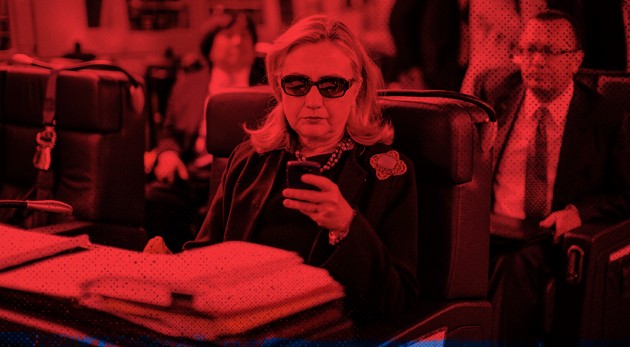
What? Setting aside the question of the Clintons’ private email server, what’s actually in the emails that Clinton did turn over to State? While some of the emails related to Benghazi have been released, there are plenty of others covered by public-records laws that haven’t.
When? 2009-2013
How serious is it? Serious. Initially, it seemed that the interest in the emails would stem from damaging things that Clinton or other aides had said: cover-ups, misrepresentations, who knows? But so far, other than some cringeworthy moments of sucking up and some eye-rolly emails from contacts like Sidney Blumenthal, the emails have been remarkably boring. The main focus now is on classification. Sixty-five emails contain information that is now classified. The question is whether any of it, and how much of it, was classified at the time it was sent. Clinton has said she didn’t knowingly send or receive classified material on the account. The State Department and Intelligence Community have disagreed about that. In addition, the Intelligence Community’s inspector general wrote in a January letter that Clinton’s server contained information marked “special access program,” a further restricted type of information. A May report from the State Department inspector general is harshly critical of Clinton’s email approach. Some emails that Clinton didn’t turn over have also since surfaced. In particular, roughly 160 emails that Clinton did not turn over have now surfaced through lawsuits by the conservative group Judicial Watch, raising questions about how and why they were withheld. In one, she even wondered about how her messages would be handled: “I have just realized I have no idea how my papers are treated at State. Who manages both my personal and official files?”

What? On September 11, 2012, attackers overran a U.S. consulate in Benghazi, Libya, killing Ambassador Chris Stevens and three other Americans. Since then, Republicans have charged that Hillary Clinton failed to adequately protect U.S. installations or that she attempted to spin the attacks as spontaneous when she knew they were planned terrorist operations. She testifies for the first time on October 22.
When? September 11, 2012-present
How serious is it? With the June 28 release of the House committee investigating Benghazi, this issue seems to be receding. That report criticized security preparations at the American facility in Benghazi as well as stations elsewhere, but it produced no smoking guns or new accusations about things Clinton could have done the night of the attacks. Although some conservatives will likely continue to assail her, the biggest damage is likely to be iterative—the highly damaging private-email story was revealed during the course of the House inquiry.
Conflicts of Interest in Foggy Bottom
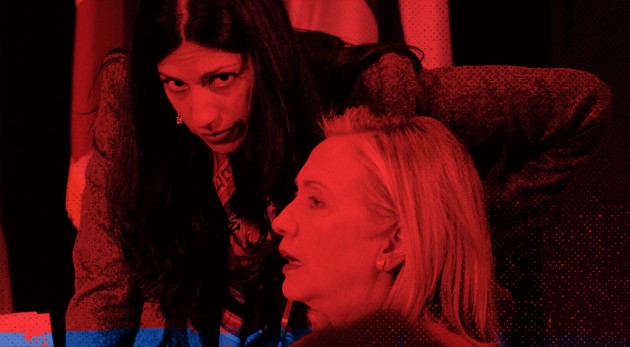
What? Before becoming Clinton’s chief of staff, Cheryl Mills worked for Clinton on an unpaid basis for four month while also working for New York University, in which capacity she negotiated on the school’s behalf with the government of Abu Dhabi, where it was building a campus. In June 2012, Deputy Chief of Staff Huma Abedin’s status at State changed to “special government employee,”allowing her to also work for Teneo, a consulting firm run by Bill Clinton’s former right-hand man. She also earned money from the Clinton Foundation and was paid directly by Hillary Clinton. In a separate case, ABC News reports that a topClinton Foundation donor named Rajiv Fernando was placed on State’s International Security Advisory Board. Fernando appeared significantly less qualified than many of his colleagues, and was appointed at the behest of the secretary’s office. Internal emails show that State staff first sought to cover for Clinton, and then Fernando resigned two days after ABC’s inquiries.
Who? Both Cheryl Mills and Huma Abedin are among Clinton’s longest-serving and closest aides. Abedin remains involved in her campaign (and she’s also married to Anthony Weiner).
When? January 2009-February 2013
How serious is it? This is arcane stuff, to be sure. There are questions about conflict of interest—such as whether Teneo clients might have benefited from special treatment by the State Department while Abedin worked for both. To a great extent, this is just an extension of the tangle of conflicts presented by theClinton Foundation and the many overlapping roles of Bill and Hillary Clinton.
The Clintons’ Private Email Server
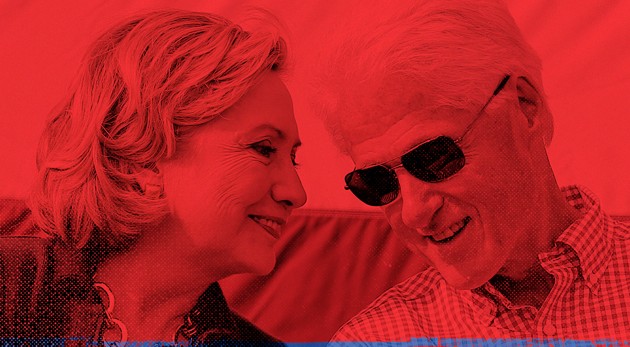
What? During the course of the Benghazi investigation, New York Times reporter Michael Schmidt learned Clinton had used a personal email account while secretary of state. It turned out she had also been using a private server, located at a house in New York. The result was that Clinton and her staff decided which emails to turn over to the State Department as public records and which to withhold; they say they then destroyed the ones they had designated as personal.
When? 2009-2013, during Clinton’s term as secretary.
Who? Hillary Clinton; Bill Clinton; top aides including Huma Abedin
How serious is it? The biggest question right now appears to be whether the server was hacked, which could have exposed classified or otherwise sensitive information. Even if not, there’s the question of whether using the serve was appropriate. The rules governing use of personal emails are murky, and Clinton aides insist she followed the rules. There’s no dispositive evidence otherwise so far. Politically, there are questions about how she selected the emails she turned over and what was in the ones she deleted. The FBI has reportedly managed to recover some of the deleted correspondence. Meanwhile, a recently released deposition shows Abedin expressing her frustration with the unwieldy setup, which she called “not a good system.”
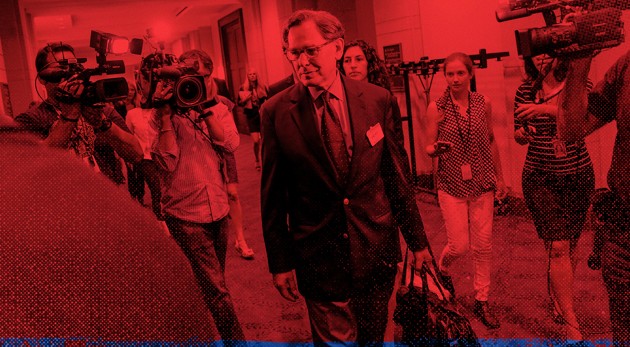
What? A former journalist, Blumenthal was a top aide in the second term of the Bill Clinton administration and helped on messaging during the bad old days. He served as an adviser to Hillary Clinton’s 2008 presidential campaign, and when she took over the State Department, she sought to hire Blumenthal. Obama aides, apparently still smarting over his role in attacks on candidate Obama, refused the request, so Clinton just sought out his counsel informally. At the same time, Blumenthal was drawing a check from the Clinton Foundation.
When? 2009-2013
How serious is it? Some of the damage is already done. Blumenthal was apparently the source of the idea that the Benghazi attacks were spontaneous, a notion that proved incorrect and provided a political bludgeon against Clinton and Obama. He also advised the secretary on a wide range of other issues, from Northern Ireland to China, and passed along analysis from his son Max, a staunch critic of the Israeli government (and conservative bête noire). But emails released so far show even Clinton’s top foreign-policy guru, Jake Sullivan, rejecting Blumenthal’s analysis, raising questions about her judgment in trusting him.
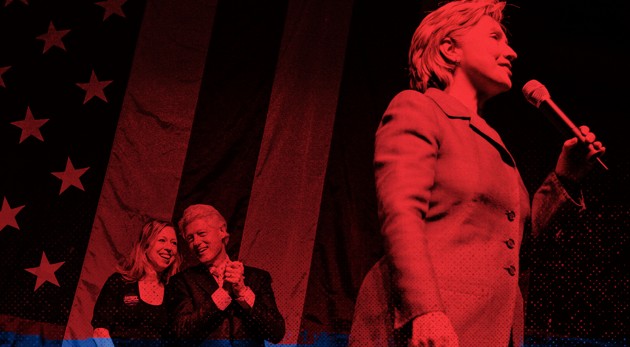
What? Since Bill Clinton left the White House in 2001, both Clintons have made millions of dollars for giving speeches.
When? 2001-present
Who? Hillary Clinton; Bill Clinton; Chelsea Clinton
How serious is it? Intermittently dangerous. It has a tendency to flare up, then die down. Senator Bernie Sanders made it a useful attack against her in early 2016, suggesting that by speaking to banks like Goldman Sachs, she was compromised. There have been calls for Clinton to release the transcripts of her speeches, which she was declined to do, saying if every other candidate does, she will too. For the Clintons, who left the White House up to their ears in legal debt, lucrative speeches—mostly by the former president—proved to be an effective way of rebuilding wealth. They have also been an effective magnet for prying questions. Where did Bill, Hillary, and Chelsea Clinton speak? How did they decide how much to charge? What did they say? How did they decide which speeches would be given on behalf of the Clinton Foundation, with fees going to the charity, and which would be treated as personal income? Are there cases of conflicts of interest or quid pro quos—for example, speaking gigs for Bill Clintonon behalf of clients who had business before the State Department?
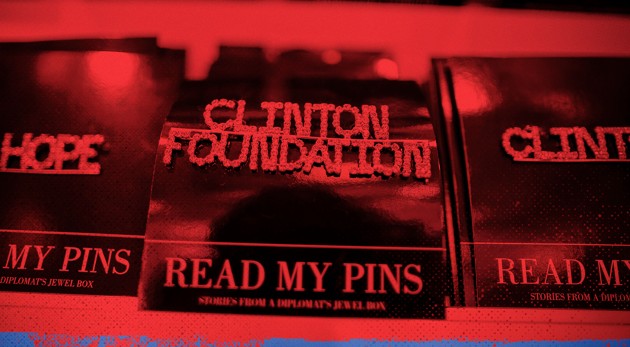
What? Bill Clinton’s foundation was actually established in 1997, but after leaving the White House it became his primary vehicle for … well, everything. With projects ranging from public health to elephant-poaching protection and small-business assistance to child development, the foundation is a huge global player with several prominent offshoots. In 2013, following Hillary Clinton’s departure as secretary of State, it was renamed the Bill, Hillary, and Chelsea Clinton Foundation.
When? 1997-present
Who? Bill Clinton; Hillary Clinton; Chelsea Clinton, etc.
How serious is it? If the Clinton Foundation’s strength is President Clinton’s endless intellectual omnivorousness, its weakness is the distractibility and lack of interest in detail that sometimes come with it. On a philanthropic level, the foundation gets decent ratings from outside review groups, though critics charge that it’s too diffuse to do much good, that the money has not always achieved what it was intended to, and that in some cases the money doesn’t seem to have achieved its intended purpose. The foundation made errors in its tax returns it has to correct. Overall, however, the essential questions about the Clinton Foundation come down to two, related issues. The first is the seemingly unavoidable conflicts of interest: How did the Clintons’ charitable work intersect with their for-profit speeches? How did their speeches intersect with Hillary Clinton’s work at the State Department? Were there quid-pro-quos involving U.S. policy? Did the foundation steer money improperly to for-profit companies owned by friends? The second, connected question is about disclosure. When Clinton became secretary, she agreed that the foundation would make certain disclosures, which it’s now clear it didn’t always do. And the looming questions about Clinton’s State Department emails make it harder to answer those questions.
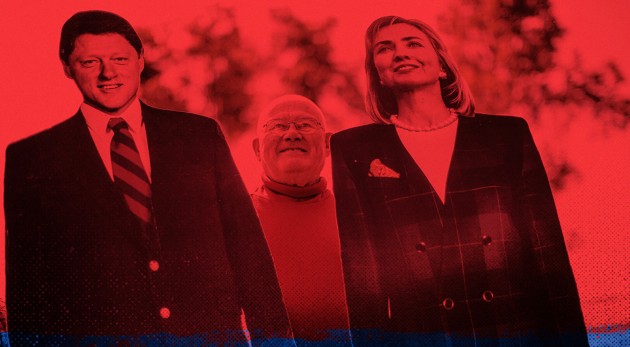
What is it? Since the Clintons have a long history of controversies, there are any number of past scandals that continue to float around, especially in conservative media: Whitewater. Troopergate. Paula Jones. Monica Lewinsky. Travelgate.Vince Foster’s suicide. Juanita Broaddrick.
When? 1975-2001
Who? Bill Clinton; Hillary Clinton; a brigade of supporting characters
How serious is it? The conventional wisdom is that they’re not terribly dangerous. Some are wholly spurious (Foster). Others (Lewinsky, Whitewater) have been so exhaustively investigated it’s hard to imagine them doing much further damage to Hillary Clinton’s standing. In fact, the Lewinsky scandal famously boosted her public approval ratings. But the January 2016 resurfacing of Juanita Broaddrick’s rape allegations offers a test case to see whether the conventional wisdom is truly wise—or just conventional. On May 23, Donald Trump released a video prominently highlighting Broaddrick’s accusation.

